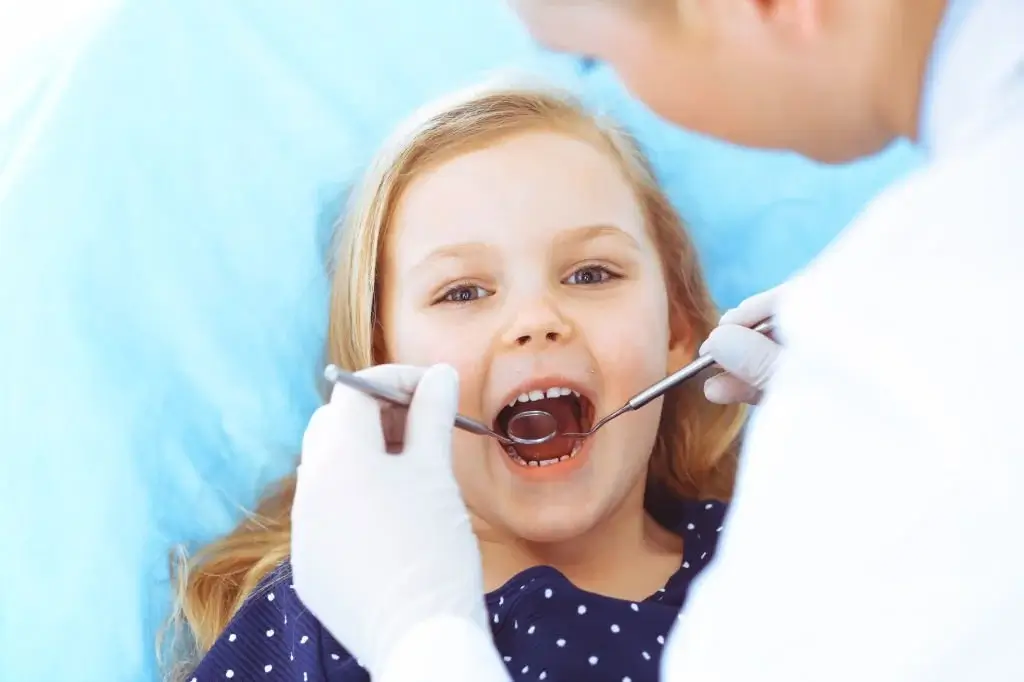If you’ve noticed white spots on your daughter’s teeth, you’re not alone. Many parents worry about the appearance of these spots and wonder what they might mean. While there are several possible causes of white spots on teeth, it’s important to consult a dentist to determine the specific cause and the best course of treatment.
What Causes White Spots on Teeth?
There are several possible causes of white spots on teeth, including:
- Tooth Decay: White spots on teeth can be an early sign of tooth decay, which is caused by bacteria that produce acid that eats away at the enamel of the tooth. If left untreated, tooth decay can lead to cavities and further damage to the tooth.
- Fluorosis: Fluorosis is a condition that occurs when a child consumes too much fluoride during the time their permanent teeth are developing (before they come in). This can cause white spots or streaks on the teeth.
- Poor Oral Hygiene: If a child is not brushing their teeth properly or is not brushing them often enough, it can lead to the build-up of plaque, which can eventually cause white spots on the teeth.
- Certain Medications: Some medications, such as tetracycline antibiotics, can cause white spots on teeth if they are taken during tooth development.
What Can Be Done About White Spots on Teeth?
The treatment for white spots on teeth will depend on the underlying cause. Here are some options:
- Tooth Decay: If the white spots are caused by tooth decay, the best course of action is to see a dentist as soon as possible. The dentist will clean out the decay and fill the cavity to prevent further damage to the tooth.
- Fluorosis: If the white spots are caused by fluorosis, the best course of action is to consult with a dentist to discuss treatment options. In some cases, the dentist may recommend applying a tooth whitening agent to the affected teeth to help reduce the appearance of the white spots.
- Poor Oral Hygiene: If the white spots are caused by poor oral hygiene, the best course of action is to encourage your child to brush and floss their teeth regularly. It may also be helpful to visit a dentist for a professional cleaning to remove any plaque or tartar that has built up on the teeth.
- Certain Medications: If the white spots are caused by certain medications, the best course of action is to consult with a dentist to discuss treatment options. In some cases, the dentist may recommend applying a tooth whitening agent to the affected teeth to help reduce the appearance of the white spots.
How Can I Prevent White Spots on Teeth?
There are several steps you can take to help prevent white spots on your child’s teeth:
- Encourage your child to brush and floss their teeth regularly to remove plaque and prevent tooth decay.
- Make sure your child is getting the recommended amount of fluoride. Fluoride is a naturally occurring mineral that helps to strengthen teeth and prevent tooth decay. It can be found in toothpaste, mouthwashes, and some types of tap water. However, it’s important to not exceed the recommended amount, as too much fluoride can lead to fluorosis and white spots on teeth.
- Limit sugary and acidic foods and drinks in your child’s diet. These types of foods and drinks can contribute to tooth decay and the development of white spots.
- Encourage your child to drink plenty of water, especially after meals. Water helps to rinse away food particles and bacteria that can lead to white spots on teeth.
- Make sure your child is visiting the dentist regularly for check-ups and cleanings. This will help to catch any issues with white spots on teeth early and allow for appropriate treatment.
Conclusion
If you notice white spots on your daughter’s teeth, it’s important to consult a dentist to determine the cause and the best course of treatment. While there are several possible causes of white spots on teeth, with the right treatment and prevention measures, these spots can be managed and prevented. Encourage your child to maintain good oral hygiene and visit the dentist regularly to ensure that their teeth remain healthy and strong.
